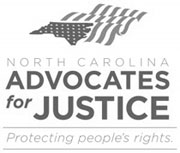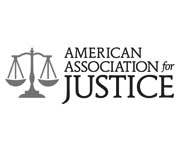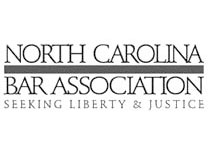If you have been injured on the job in North Carolina you may be entitled to workers' compensation benefits to help cover your living expenses and medical costs. In order to guarantee you are fairly compensated you should seek the legal advice of an experienced workers' compensation attorney. The lawyers at Thompson & Pureza have represented injured workers throughout northeastern North Carolina and the Outer Banks for over thirty years. Our representation begins with the presentation of a claim and continues through the hearing and appellate review levels until the claim is brought to a conclusion.
About Workers' Compensation in North Carolina and the Outer Banks
Workers' Compensation laws are designed to ensure that employees who are injured or disabled on the job are provided with fixed monetary awards, eliminating the need for litigation. These laws also provide benefits for dependents of those workers who are killed because of work-related accidents or illnesses. Some laws also protect employers and fellow workers by limiting the amount an injured employee can recover from an employer and by eliminating the liability of co-workers in most accidents. North Carolina State Workers' Compensation statutes establish this framework for most employment. Federal statutes are limited to federal employees or those workers employed in some significant aspect of interstate commerce. It is important in serious cases that an injured employee has an experienced lawyer representing him or her in dealing with the complex nature of these claims.
Frequently Asked Questions About Workers' Compensation
- Q: Who is required to provide workers' compensation coverage?
A: Any employer who employs three or more employees. - Q: What must an employee do when an injury occurs?
A: Report the injury to the employer, in writing, immediately and in any event within 30 days. - Q: What should be done if the employer fails or refuses to report an injury?
A: The employee should file a claim (Form 18) within two years of the accident with the Industrial Commission. - Q: Who provides and directs medical treatment?
A: The employer or its insurance company, subject to any Industrial Commission orders, provides and directs medical treatment. The Industrial Commission may permit the employee to change physicians or approve a physician of employee's selection when good grounds are shown. However, payment by the employer or carrier is not guaranteed unless written permission to change physicians is obtained from the employer, carrier, or Industrial Commission before the treatment is rendered. - Q: When can reimbursement for sick travel be collected?
A: Employees are entitled to collect for mileage for medical treatment in workers' compensation cases for travel, provided they travel 20 miles or more round trip. Special consideration will be given to employees who are totally disabled.
Q: What happens if, in an emergency, the employer fails or refuses to provide medical treatment?
A: The employee may obtain the necessary treatment from a physician or hospital of his own choice, but must promptly request the Industrial Commission's approval. - Q: When do I become eligible for lost wage compensation?
A: No compensation is due for the first seven (7) days of lost time unless the disability exceeds 21 days. Therefore, the first check will not include payment for days 1-7. Payment for those days will be made should the disability continue beyond 21 days. - Q: How often are compensation payments made?
A: Weekly. - Q: At what rate of pay?
A: 66 2/3% of the average weekly wage, per week. - Q: How long is the employee eligible to receive lost-time weekly benefits?
A: Until the employee is able to return to work. - Q: What is permanent partial disability?
A: Total loss or partial loss of use of a member of the body or inability to earn the same wages in any employment as earned at the time of injury. - Q: Who determines permanent partial disability?
A: The Industrial Commission, based on the impairment ratings of physicians or evidence of consideration of wage earning capacity. - Q: What happens when the employer refuses to acknowledge the claim?
A: When liability for payment of compensation is denied, the Industrial Commission, the claimant, his or her attorney, if any, and all known providers of health care shall be promptly notified of the reason for such denial. The denial Form 61 shall not be worded in general terms, but must detail the exact reason for the denial of liability.- If a claim is denied by the insurance company or self-insurer, the employee may request a hearing before the Industrial Commission by submitting a Form 33, Request for Hearing.
- Medical providers may bill the employee only after it has finally been determined that it is not a compensable workers' compensation claim.
- Q: What is a clincher agreement?
A: Compromised settlement agreements, commonly referred to as "Clincher Agreements" are total and complete settlements of claims. Generally, the employee accepts a lump sum of money and in exchange, gives the employer a total release for any further liability under the Workers' Compensation Act. Also compromised settlement agreements must be submitted to the commission for approval. Only those agreements deemed fair and equitable and in the best interest of all parties will be approved. - Q: Do I have to agree to a clincher agreement?
A: No. If you have a rating of disability, you can agree to accept the disability benefits available to you under the act and generally keep your case open for two years in the event that you need additional medical treatment or benefits. This is generally referred to as settlement on the form.
Contact Us for a Free Consultation
The law firm of Thompson & Pureza has earned the reputation of standing up for the rights of injured and disabled workers. Our lawyers represent clients throughout northeastern North Carolina including the Outer Banks, Elizabeth City, Currituck, Camden, Duck, Kill Devil Hills, Nags Head, Southern Shores, Kitty Hawk, Corolla, Manteo, Edenton, Hertford, Perquimans, Pasquotank, Chowan and Gates County. For a free consultation call at us (252) 335-7200.



